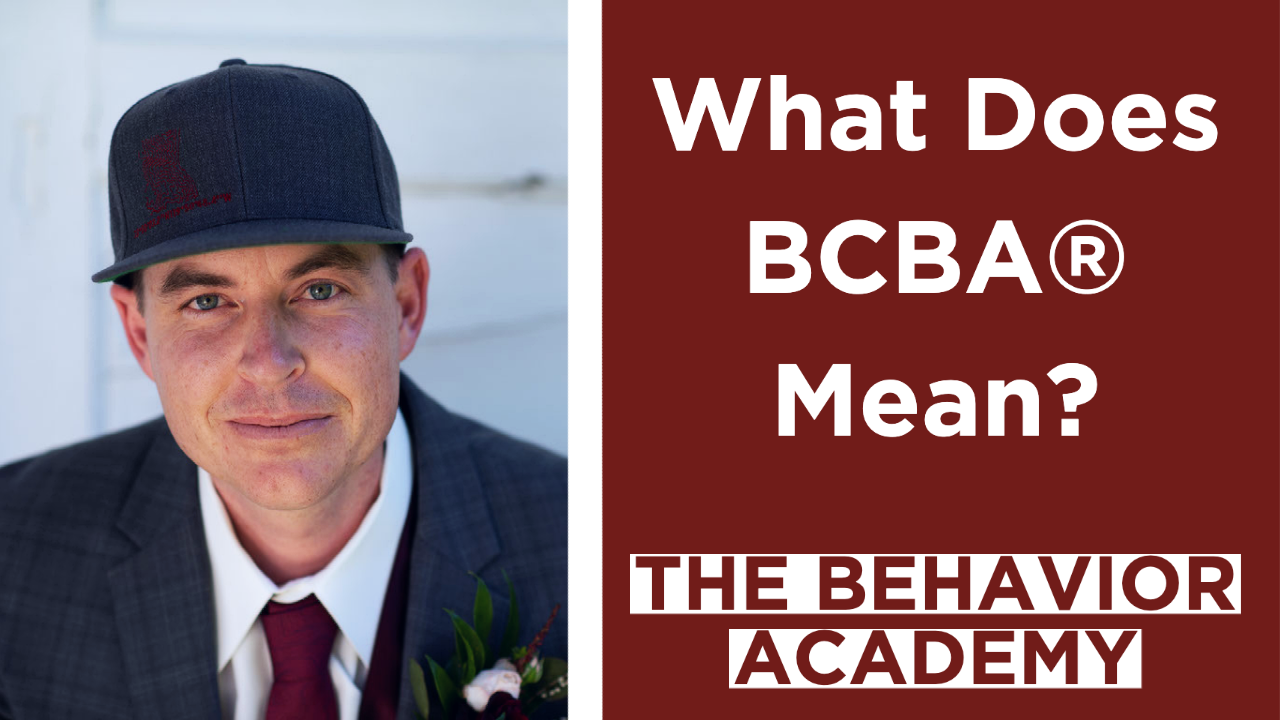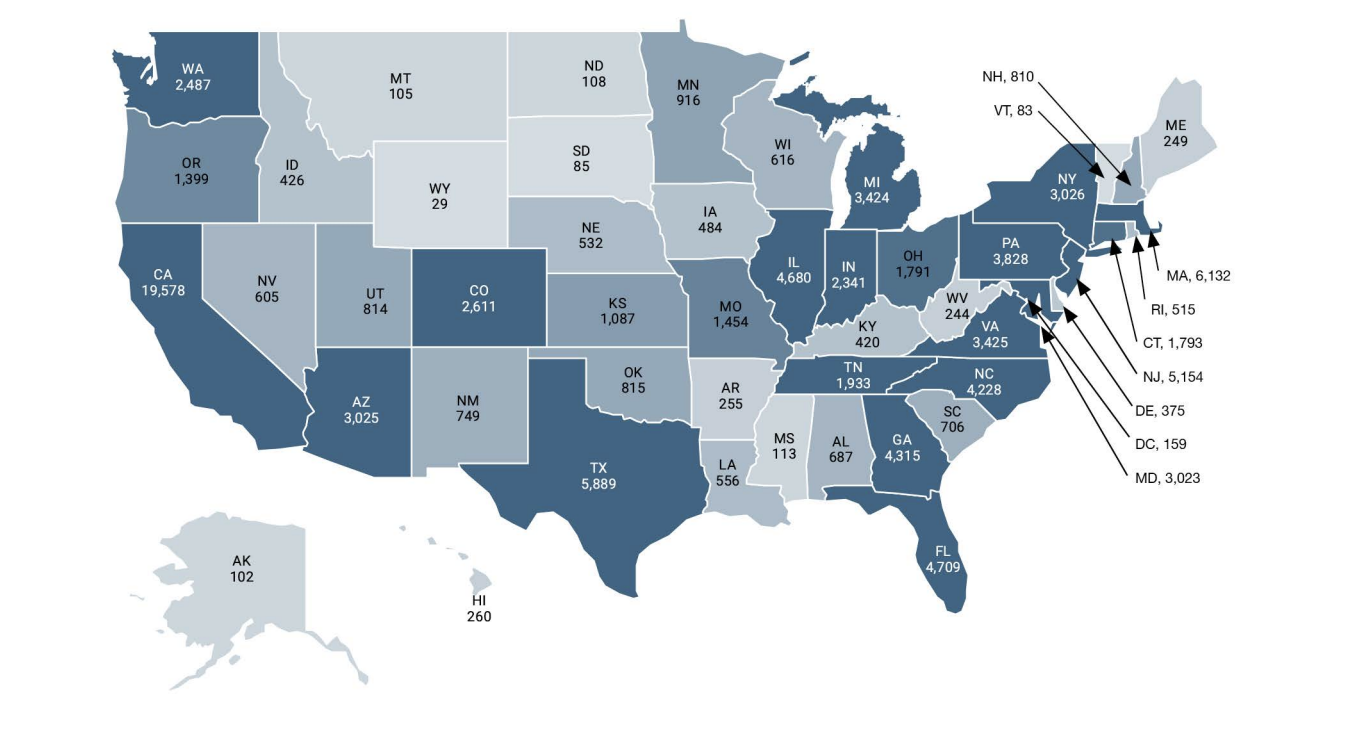What Does BCBA® Mean, and How to Become One?

Welcome to our deep dive into the world of Board Certified Behavior Analysts (BCBA®), a profession that is pivotal in helping individuals with behavioral challenges lead enriched lives. This blog post is designed to clarify the BCBA® meaning and shed light on the comprehensive process to earn this sought-after certification. Let's navigate together the path to becoming a BCBA®.
What Does BCBA® Mean?
BCBA® means a Board Certified Behavior Analyst®. It is a graduate-level certification in behavior analysis, granted by the Behavior Analyst Certification Board (BACB®). The BACB® is a nonprofit corporation established in 1998 to meet professional certification needs identified by behavior analysts, governments, and consumers of behavior-analytic services. Its mission is to protect consumers of behavior-analytic services by systematically establishing, promoting, and disseminating professional standards of practice1.
What Does a BCBA® Do?
Professionals certified at the BCBA® level are independent practitioners who provide behavior-analytic services. They apply the principles of behavior analysis to influence human behaviors as part of a therapeutic or educational process. BCBA®s work in a variety of settings, including homes, schools, workplaces, and community environments, depending on the population and specific goals of treatment.
BCBA®s may supervise the work of Board Certified Assistant Behavior Analysts (BCaBA®s), Registered Behavior Technicians (RBT®s), and other professionals who implement behavior-analytic services1. They are responsible for ensuring that the interventions and strategies used are effective and ethical. They also design and manage intervention plans, conduct assessments, and train others in the implementation of these plans.
What’s the Difference Between ABA and BCBA?
ABA is the field of study, while BCBA® is the title for an individual who is certified to practice ABA. ABA stands for Applied Behavior Analysis, which is a scientific discipline that involves the application of principles of behavior to improve socially significant behaviors. For a comprehensive overview of the field of Applied Behavior Analysis, check out our free feature-length documentary called "The History of Applied Behavior Analysis: Part 1"
A BCBA®, or Board Certified Behavior Analyst®, is a person who is certified by the Behavior Analyst Certification Board (BACB®) to provide and supervise behavior analysis services. To become a BCBA®, one must meet specific educational and experiential requirements, pass an examination, and maintain ongoing professional and ethical standards.
What’s the Difference Between a BCBA and a Psychologist?
While both BCBA®s and psychologists work in the field of human behavioral and mental health, there are significant differences between the two professions. A BCBA® is a professional who has specialized training in applying the principles of behavior analysis. They work to understand and change behavior in various settings using data-driven methods.
On the other hand, psychologists have a broader scope of practice, which can include psychotherapy, psychological testing, and a variety of therapeutic interventions. Psychologists typically have a doctoral degree, although some practice with a master's degree. They are trained to diagnose and treat a wide range of mental health disorders, something that a BCBA® is not trained or licensed to do. It's important to note that while there may be some overlap in the populations they serve, the professions are separate degrees with different training typically.
What is the current demand for hiring a BCBA® in each state?
According to the Behavior Analyst Certification Board (BACB)'s most recent publication with Lightcast, the demand for behavior analysts is at an all-time high. Since 2010, the need for BCBA® and BCBA-D® (doctoral level) certified professionals has grown yearly, with a 58% jump from 2023 to 2024 alone. Below is a heatmap showing areas of the highest hiring demand, with needs seen increasing in all 50 states.

Source: Behavior Analyst Certification Board. (2025). US employment demand for behavior analysts: 2010–2024
It cannot be understated just how quickly the field is growing when you look at the demand across the past 15 years:

Source: Behavior Analyst Certification Board. (2025). US employment demand for behavior analysts: 2010–2024
How to Become a BCBA®
Becoming a BCBA involves several steps, as outlined by the BACA®:
- Earn a graduate degree: You must have a minimum of a master's degree from an accredited university. This degree can be in behavior analysis, education, psychology, or many others from an accredited and approved institution (more on this below).
- Complete relevant coursework: You must complete a certain amount of graduate-level coursework in behavior analysis.
- Gain supervised experience: You must complete a period of supervised practical experience under a BCBA®.
- Apply for the BCBA® exam: Once you have met the degree and experience requirements, you can apply to take the BCBA certification exam.
- Pass the BCBA® exam: After your application is approved, you can take the BCBA® exam. Passing this exam is the final step in becoming a BCBA®.
How Long Does it Take to Become a BCBA®?
The length of time it takes to become a BCBA® can vary depending on several factors. After obtaining a bachelor's degree, you must earn a master's degree, which typically takes two years. The required coursework can often be completed within the timeframe of the master's program, although this can vary depending on the program.
The supervised experience requirement involves a certain number of hours that must be completed over a specified period. The speed at which you accrue these hours can greatly influence the total time it takes to become a BCBA®. For instance, if you are able to gain supervised experience full-time, you may complete this requirement faster than someone who is gaining experience part-time.
Once all these requirements are met, you can apply to take the BCBA® certification exam. The process of applying, scheduling, and taking the exam can take several months. Therefore, it's reasonable to expect that the process from starting a master's program to becoming a BCBA® will take a minimum of two years, although this can vary based on individual circumstances and the speed at which supervision hours are accrued.
What Should You Study in College to Become a BCBA®?
To become a BCBA®, you should study a field that is relevant to behavior analysis. This could include degrees in psychology, education, or behavior analysis itself. The BACB® specifies that to be eligible for BCBA® certification, you must have a minimum of a master's degree or higher from an accredited institution. Currently, that includes:
- United States: An institution in the US that is listed in the Council for Higher Education Accreditation database.
- Canada: An educational institution in Canada that is recognized, authorized, registered, or licensed by the Canadian government.
- Australia: A university in Australia that is registered with the Tertiary Education Quality and Standards Agency.
- United Kingdom: A college or university in the UK that is recognized as a degree-awarding body by the UK government.
In addition to your degree, you will need to complete specific coursework in behavior analysis. This coursework can often be completed as part of a degree program in one of the fields mentioned above, but it can also be completed separately. The required coursework covers specific content areas identified by the BACB®, such as ethical and professional conduct, concepts and principles of behavior analysis, and research methods in behavior analysis1.
In conclusion, the BCBA® meaning is more than just a title—it represents a commitment to understanding and changing behavior using data-driven, ethical methods. Whether you're asking "What is a BCBA®?" or "How to become a BCBA®?", the answer involves a combination of specialized education, supervised experience, and a continued dedication to the principles of behavior analysis.
References:
- Behavior Analyst Certification Board. (2022). BCBA® and BCaBA® Role Delineation. Retrieved from BCBA Handbook and BCaBA Handbook
- Behavior Analyst Certification Board. (2025). US employment demand for behavior analysts: 2010–2024.
About the Author:
Ryan O’Donnell, MS, BCBA is a Board Certified Behavior Analyst (BCBA®) with over 12 years of experience in the field. He has dedicated his career to helping individuals improve their lives through behavior analysis and are passionate about sharing their knowledge and expertise with others. He oversees The Behavior Academy and helps top ABA professionals create video-based content in the form of films, online courses, and in-person training events. He is committed to providing accurate, up-to-date information about the field of behavior analysis and the various career paths within it. Learn more about behavior analysis at here at The Behavior Academy.

